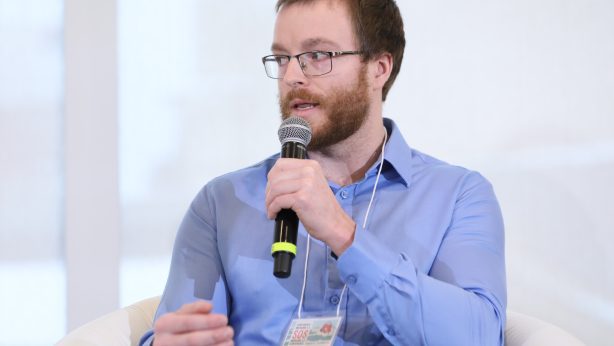Canada’s new dental care plan will be tangible and popular: MP Don Davies
The NDP’s Health Critic says Canada’s long-awaited public dental care plan will finally give millions of children and seniors access to dental care.
Don Davies, MP (Vancouver Kingsway), made the remarks at a webinar organized by the Canadian Health Coalition and hosted by Anne Lagacé Dowson on August 29.
Davies acknowledges that the fight is not over for universal public dental care coverage, saying, “The NDP will not stop until every Canadian has universal and comprehensive health care coverage.”
The Liberal-NDP Confidence and Supply Agreement’s section on dental care involves first providing care to 12-year-olds and under by the end of 2022, then to 18-year-olds and under, and seniors and people living with disabilities by 2023. The dental care program is supposed to be fully implemented by 2025 with families with incomes under $90,000 per year covered by the plan.
“This is a class issue. Teeth are different. It’s on our face. It affects our mental health. When someone walks into a job interview, we make an assumption about them. People feel ashamed and embarrassed, never mind having to deal with health issues.”
DON DAVIES, NDP HEALTH CRITIC
Attention has been focused on the complexity of designing and implementing such a program before the deadline of 2022.
As a bridge to the full program’s implementation, qualifying middle-to-low-income earning Canadian families could receive about $600 per child under 12 years old for dental care by the end of this year and another $600 by April of next year, according to Davies.
“By the end of 2023, every senior making under $75,000 per year will have access to dental care. You know what seniors they are? They are almost every senior in Canada,” said Davies.
If the dental care program doesn’t roll out in time, Davies said that the NDP could walk away from their agreement with the Liberals.
Provinces with higher rates of poverty and lower-income households stand to benefit more from the dental care plan. In New Brunswick, two-thirds of families could benefit from the dental care plan on the table, reported CBC on August 25.
According to Statistics Canada, about one fifth of Canadians avoided going to a dentist because of the cost.
In Indigenous communities, inadequate dental care is more acutely felt. A 2017 Auditor General of Canada report found that First Nations and Inuit populations had almost twice as much dental disease in comparison to non-Indigenous Canadians because of fewer visits to a dentist, geographical barriers and inadequate access to nutritious food.
“This is a class issue. Teeth are different. It’s on our face. It affects our mental health. When someone walks into a job interview, we make an assumption about them. People feel ashamed and embarrassed, never mind having to deal with health issues,” said Davies.
Support the Canadian Health Coalition
Joining Davies on the webinar was Dr. Brandon Doucet, a dental surgeon and founder of the Coalition for Dentalcare, an organization of dentists and dental professionals dedicated to making dental care more accessible to Canadians.
“People who don’t have private insurance or who don’t have the money to pay for care out-of-pocket struggle more with accessing care and they tend to focus their resources on emergency procedures dealing with pain and infection while neglecting preventive services and early intervention,” added Dr. Doucet.
Dr. Doucet pointed out that dental infections can be life-threatening, which is why Canada needs proactive dental care.
On March 26, 2022, CBC reported that 31-year-old Ottawa resident Shane Mckenzie’s tooth infection eventually led to sepsis and to him losing fingers, toes and his right leg below the knee. He waited just one month to see a dentist, but by then the infection had spread to his bloodstream.
Taking the profit motive out of dental care
While Conservative politicians like Pierre Poilievre complain about the cost of a public dental care plan, Davies notes that delivering universal health care is actually cheaper.
“We have been coasting on past glories for decades,” said Davies. “Yes, we have excellent care through hospitals and physicians, but we have a two-tiered, US-style access to care for dental care, prescription drugs, eye care, auditory care, and mental health care.”
For Davies, not having a public dental care plan is “a national shame. It’s been overdue for far too long, since 1964.” He wants a Smile Canada card in everybody’s pocket by the end of 2023 so that everyone can go to a dentist.
“This is a program for people to be able to walk into a dentist office with dignity,” said Davies, adding that everybody should be able to access quality dental care and be treated the same way that Justin Trudeau is treated when he sees the dentist.
Tracy Glynn is the National Director of Projects and Operations for the Canadian Health Coalition


